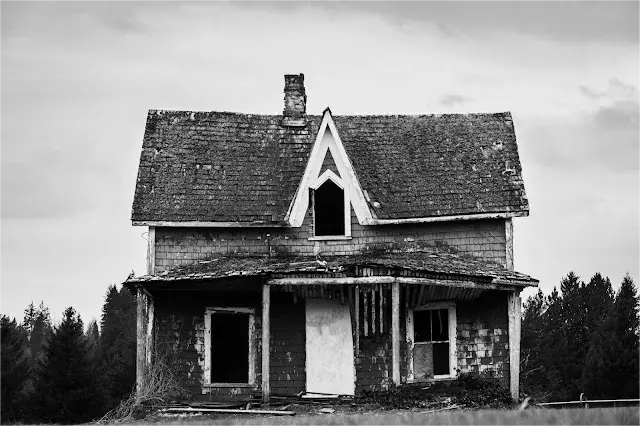Trails Carolina Horror Stories, like many wilderness therapy programs, offers hope to families struggling with troubled teenagers. However, behind the picturesque backdrop of nature lies a darker reality. In recent years, numerous accounts have surfaced alleging mistreatment, neglect, and trauma within the program. These “horror stories” shed light on the potential dangers lurking beneath the surface of wilderness therapy.
The Promise of Wilderness Therapy
Trails Carolina Horror Stories markets itself as a therapeutic wilderness program designed to help struggling youth overcome behavioral issues, addiction, and mental health challenges. With promises of adventure, personal growth, and transformative experiences, it appeals to parents desperate for solutions to their children’s struggles. However, the reality for some participants has been far from what was advertised.
Allegations of Abuse and Neglect
Behind the idyllic façade of wilderness therapy lies a disturbing underbelly of abuse and neglect. Numerous former participants and staff members have come forward with allegations of physical, emotional, and psychological abuse. Stories of isolation, forced labor, and harsh disciplinary tactics paint a troubling picture of life within Trails Carolina Horror Stories.
Trauma and Long-Term Effects
For many who have experienced Trails Carolina, the trauma doesn’t end when the program concludes. Participants recount lasting psychological scars, including anxiety, depression, and post-traumatic stress disorder. Some struggle to trust others or form healthy relationships after enduring traumatic experiences in the program.
Lack of Oversight and Accountability
One of the most concerning aspects of Trails Carolina horror stories is the lack of oversight and accountability within the industry. Wilderness therapy programs operate with minimal regulation, leaving participants vulnerable to abuse and exploitation. The absence of standardized licensing, accreditation, and oversight mechanisms allows programs to operate unchecked, with potentially devastating consequences.
Calls for Reform and Regulation
In light of mounting allegations and growing public awareness, there have been calls for reform and regulation within the troubled teen industry. Advocacy groups, former participants, and concerned citizens are urging policymakers to enact stricter oversight measures to protect vulnerable youth. Proposals include licensing requirements, mandatory reporting of abuse, and increased transparency in program operations.

Support for Survivors and Victims
As survivors of Trails Carolina Horror Stories and other troubled teen programs continue to come forward, support networks are emerging to offer validation, healing, and justice. Online communities, survivor-led organizations, and legal advocacy groups provide resources and solidarity to those who have experienced trauma within the industry. By amplifying survivors’ voices and advocating for change, these networks seek to prevent future harm and hold accountable those responsible for past abuses.
Shining a Light on the Shadows
Trails Carolina Horror Stories serve as a sobering reminder of the dangers lurking within the troubled teen industry. While wilderness therapy programs may offer hope to some families, the reality for others has been one of trauma, abuse, and long-term harm. As awareness grows and calls for reform intensify, it is essential to shine a light on the shadows of the troubled teen industry and work towards a future where all youth are treated with dignity, respect, and compassion.
Exploring the Legal Landscape
In recent years, legal actions against Trails Carolina and similar programs have shed further light on the industry’s darker aspects. Lawsuits alleging negligence, abuse, and wrongful death have prompted increased scrutiny and public awareness. Legal battles have highlighted the need for stronger legal protections for participants and accountability for program operators. However, navigating the legal landscape can be complex and challenging for survivors seeking justice.
Addressing Ethical Concerns
Ethical considerations surrounding wilderness therapy programs like Trails Carolina Horror Stories raise important questions about the balance between therapeutic intervention and potential harm. Critics argue that coercive tactics, lack of informed consent, and profit-driven motives undermine the ethical integrity of these programs. Addressing these concerns requires a fundamental reevaluation of industry practices and a commitment to upholding the rights and well-being of participants.
Exploring Alternative Approaches
Amidst the controversy surrounding wilderness therapy, there is growing interest in alternative approaches to supporting troubled youth. Community-based programs, family therapy, and trauma-informed care models offer more holistic and compassionate alternatives to traditional wilderness programs. By prioritizing individualized support, empowerment, and collaboration, these approaches seek to address underlying issues and promote sustainable healing and growth.
Educational Initiatives and Awareness Campaigns
Educational initiatives and awareness campaigns play a crucial role in challenging misconceptions and raising awareness about the realities of wilderness therapy programs. By sharing survivors’ stories, disseminating accurate information, and advocating for systemic change, these initiatives empower individuals and communities to make informed decisions and demand accountability from program operators and policymakers.
Trails Carolina Horror Stories: Conclusion
The stories of trauma and abuse within Trails Carolina Horror Stories and similar programs underscore the urgent need for systemic change within the troubled teen industry. As survivors continue to come forward and demand justice, it is imperative to listen, amplify their voices, and take decisive action to prevent future harm. By advocating for stricter regulations, ethical standards, and survivor-centered approaches, we can work towards a future where all youth are treated with dignity, respect, and compassion.
Frequently Asked Questions (FAQs) About Trails Carolina Horror Stories
Q1: What is Trails Carolina Horror Stories, and why are there horror stories associated with it?
A1: Trails Carolina is a wilderness therapy program aimed at helping troubled youth overcome behavioral and mental health challenges. However, horror stories have emerged, alleging abuse, neglect, and trauma within the program.
Q2: What kinds of abuse and neglect have been reported at Trails Carolina Horror Stories?
A2: Allegations include physical, emotional, and psychological abuse, as well as instances of isolation, forced labor, and harsh disciplinary tactics.
Q3: How do Trails Carolina Horror Stories affect participants?
A3: Participants often experience lasting psychological effects, such as anxiety, depression, and post-traumatic stress disorder, as well as struggles with trust and forming healthy relationships.
Q4: Why is there a lack of oversight and accountability in the troubled teen industry?
A4: The troubled teen industry operates with minimal regulation, allowing programs like Trails Carolina to operate unchecked. There are no standardized licensing or accreditation requirements, leaving participants vulnerable to exploitation.
Q5: What are advocacy groups and survivors doing to address the issues within the troubled teen industry?
A5: Advocacy groups and survivors are calling for stricter regulations, mandatory reporting of abuse, and increased transparency in program operations. They are also providing support and resources to survivors and working towards systemic change.
Q6: How can I identify if someone has been a victim of abuse at Trails Carolina Horror Stories?
A6: Signs of abuse may include unexplained injuries, sudden changes in behavior, reluctance to discuss experiences at the program, and expressions of fear or anxiety when discussing Trails Carolina.
Q7: Are there any legal actions being taken against Trails Carolina?
A7: Yes, there have been lawsuits filed against Trails Carolina alleging abuse, negligence, and violations of participants’ rights. These legal actions aim to hold the program accountable for its actions and seek justice for survivors.
Q8: Has Trails Carolina responded to the allegations of abuse and neglect?
A8: Trails Carolina has denied the allegations of abuse and neglect, stating that they are committed to the safety and well-being of their participants. However, critics argue that their responses have been inadequate and lacking in transparency.
Q9: What steps can parents take to ensure their child’s safety if considering enrolling them in a wilderness therapy program?
A9: Parents should thoroughly research any program they are considering, including conducting background checks, reading reviews and testimonials, and visiting the program in person if possible. It’s essential to ask detailed questions about the program’s safety protocols, staff training, and participant supervision.
Q10: How can I support survivors of abuse at Trails Carolina?
A10: You can support survivors by listening to their stories without judgment, validating their experiences, and connecting them with resources such as therapy, support groups, and advocacy organizations. Additionally, you can join efforts to advocate for systemic change within the troubled teen industry to prevent further instances of abuse.

Navigating the Diverse Realms of Tech, News, and Business
Meet Debra Evans, a versatile blogger with a passion for exploring the ever-evolving landscapes of technology, news, business, and more. Debra’s blogs are a reflection of her commitment to delivering insightful content that spans a spectrum of niches. With a knack for distilling complex topics into digestible insights, Debra invites readers to join her on a journey where each blog post is a window into the dynamic intersection of modern trends and business dynamics.
